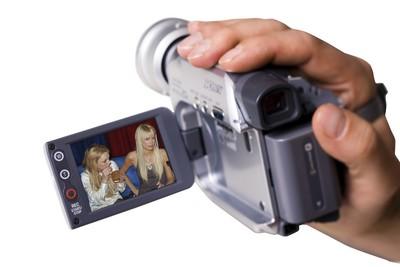FOCUSED ON VIDEO VOYEURISM

CARSON CITY — Paparazzi could be imprisoned for distributing pictures, such as those widely circulated shots of an underdressed Britney Spears, under a bill before the Legislature, an American Civil Liberties Union lawyer testified Wednesday.
ACLU lawyer Lee Rowland told lawmakers she doubts the proposal to make "video voyeurism" a felony could pass constitutional muster if it is applied to photos of celebrities. Senate Bill 10 is "too subjective" in how it defines when the subject of a photograph has a "reasonable expectation of privacy," Rowland said.
"We believe this is unconstitutional and also unwise, as it would literally criminalize every tabloid magazine," Rowland said.
Under the bill, people who intentionally take photos of the "private areas" of others and then distribute or publish them would be guilty of a felony and subject to one year to four years in prison and a $5,000 fine.
The bill passed the Senate last week on a 19-1 vote, but its sponsor, Sen. Barbara Cegavske, R-Las Vegas, has throughout her legislative career repeatedly failed to win the bill’s approval in the Assembly.
Rowland said the bill would make felons out of paparazzi based on "sham protestations of celebrities."
Spears was recently photographed repeatedly emerging from limousines and partying at clubs sans panties.
Other incidents cited during testimony on the bill were singer Janet Jackson’s infamous Super Bowl "wardrobe malfunction" in which her breast was exposed and the iconic photos of Marilyn Monroe with her dress billowing up while she stood over a subway grate.
There was speculation that each of these incidents was staged and designed to generate publicity.
After the meeting, Rowland said video voyeurism is a serious issue and there are "real situations" when noncelebrity women should be protected.
But she said the bill needs more objective standards on what constitutes a reasonable expectation of privacy. The bill largely leaves it up to police or the district attorney’s office to determine when a violation has occurred, according to Rowland. There currently is sufficient court precedent on what is a reasonable expectation of privacy, Rowland said.
Legislators challenged Rowland’s position on the bill.
"So if you walk down the street and the wind blows up your skirt and it (the photograph) is published on the Internet, that is not punishable?" asked Assemblyman William Horne, D-Las Vegas.
"If you are a celebrity, no," Rowland said.
"That is an unfair standard," Horne replied.
Rowland said some women are at times partially exposed. A photo could be snapped of a woman’s private areas if she’s "wearing a short skirt" and the wind blows, she said. Some women wear low-cut jeans and "they lean over and you see some underwear," she said.
Horne said a person could look at a woman whose skirt was blown up by the wind, but he questioned whether that person should be allowed to share that sight "with the world."
"You would have a reasonable expectation of privacy, that someone in Europe or Asia would not see it," Horne said
"I don’t think anyone ever has had a reasonable expectation of privacy based on a wind event," Rowland replied.
Rowland said she supports a video voyeurism law that addresses situations such as a person placing a camera on his foot to take pictures up women’s dresses.
But Cegavske maintained the bill is fine as written. "With all due respect to the opposition, this bill has been thoroughly thought out," he said.
Police representatives testified in favor of the bill.
"It gives us a tool to deal with these situations," said Bob Roshak, a Las Vegas police lobbyist. "It is frustrating to respond to something you know is wrong and there is nothing you can do about it."
Judiciary Chairman Bernie Anderson, D-Las Vegas, did not take a vote on the bill. He said it would be discussed in a future meeting.
The Associated Press contributed to this report.